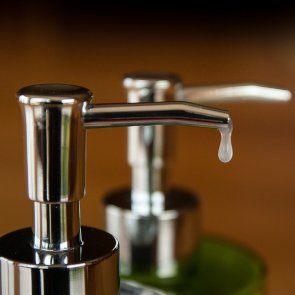5 Ingredients to Avoid in Your Face Wash
 Cleansing is an important step in every skincare routine, but it is beneficial for your skin only if you do it right. For example, using a suspiciously cheap face wash isn’t likely to do anything good for your skin because mass-market products often contain ingredients that are considered potentially unsafe. Here are 5 ingredients you should avoid in your face wash.
Cleansing is an important step in every skincare routine, but it is beneficial for your skin only if you do it right. For example, using a suspiciously cheap face wash isn’t likely to do anything good for your skin because mass-market products often contain ingredients that are considered potentially unsafe. Here are 5 ingredients you should avoid in your face wash.1. Sulfates (SLS/SLES)
Sodium lauryl sulfate (SLS) and sodium laureth sulfate (SLES) are two common detergents and surfactants found in many face washes, shower gels, shampoos, and other personal care products. They are widely used because they are inexpensive and very effective foaming agents.
Unfortunately, like many other detergents, SLS and SLES are known irritants. However, the main problem with these ingredients is that they strip the skin of natural oils that protect it and help lock in moisture.
2. Phthalates
Pthalathe esters (phthalates) are mainly used as plasticizers in a variety of industries. As far as the cosmetic industry is concerned, various forms of phthalates are used as solvents, humectants, emollients, and emulsifiers.
Unfortunately, phthalates are known endocrine disruptors, meaning that they interfere with your body’s hormonal mechanisms. Of course, nothing tragic will happen if you use a face wash with phthalates once or twice, but prolonged exposure to these compounds is definitely bad for your health.
3. Parabens
Parabens are a class of preservatives that are widely used in cosmetic and pharmaceutical products because they are active against a broad spectrum of bacteria and fungi as well as inexpensive. There have been concerns that parabens may increase the risk of breast cancer because of their estrogenic activity. Although studies have established no direct link between parabens and cancer, parabens still can’t be considered completely harmless.
First, parabens can cause skin irritation and contact dermatitis in individuals with overly sensitive and allergy-prone skin. Second, methylparaben may increase the skin’s sensitivity to UVB radiation, leading to accelerated skin aging and heightened risk of skin cancer.
4. Triclosan
Some anti-acne face washes contain triclosan, an antibacterial and anti-fungal agent that is supposed to eliminate acne-causing bacteria. Unfortunately, this compound has a number of known side effects. For example, it increases the risk of antimicrobial resistance and causes contact dermatitis in some individuals. In the USA, the use of triclosan in “consumer antiseptic washes” is prohibited by the FDA, but this ingredient can still be found in some products made in Europe.
5. Fragrances
The only purpose of adding fragrances to a face wash is to make it smell good. The problem with fragrances is that the term “fragrance” can represent hundreds of chemicals, many of which can cause skin irritation, headaches, allergies, and other health problems. To be on the safe side, stick to face washes labeled “unscented” or “fragrance-free”. If you absolutely can’t imagine your skincare routine without a nicely smelling face wash, opt for organic products that contain essential oils and plant extracts as fragrance.
Breadcrumbs
Filters
- Face
Tags
Related Articles
- 7 Ingredients to Avoid in Feminine Intimate Washes, 4 Ingredients to Avoid in Hair Dyes, 8 Toothpaste Ingredients You Need to Avoid, 7 Products and Ingredients to Detox Your Skin